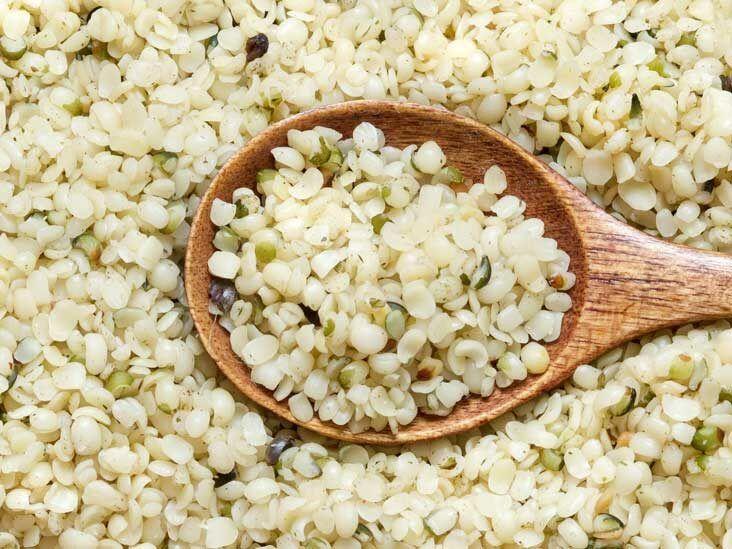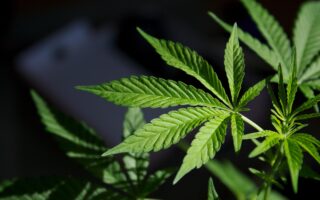In a world increasingly leaning towards eco-consciousness and sustainable living, the humble hemp plant stands out as a beacon of versatility and potential. Among its many parts, the seeds of this ancient crop offer a treasure trove of benefits, from nutritional powerhouse to environmentally friendly resource. As we peel back the layers of the hemp seed—exploring its unique properties, culinary applications, and role in industrial innovation—we embark on a journey through a small, yet significant, seed that could reshape our relationship with the planet. Join us as we delve into the remarkable story of hemp plant seeds, uncovering their history, benefits, and the promising future they hold.
Table of Contents
- Understanding the Nutritional Powerhouse of Hemp Seeds
- Cultivating Hemp Seeds: Best Practices for Optimal Growth
- Exploring Hemp Seed Oil: Benefits and Uses in Everyday Life
- Navigating the Legal Landscape of Hemp Seed Production
- Q&A
- Insights and Conclusions
Understanding the Nutritional Powerhouse of Hemp Seeds
Hemp seeds are often hailed as a superfood, packed with an impressive array of nutrients that contribute to overall health and well-being. These tiny seeds are rich in essential fatty acids, particularly omega-3 and omega-6, which play a crucial role in brain health and cardiovascular function. Moreover, hemp seeds contain a complete protein profile, containing all nine essential amino acids that the body cannot produce on its own. This makes them an excellent addition to vegetarian and vegan diets, providing a plant-based source of protein. In addition to proteins and healthy fats, hemp seeds are a great source of vitamins and minerals, including magnesium, zinc, and iron, which are vital for various bodily functions.
The versatility of hemp seeds in culinary applications further enhances their appeal. They can be enjoyed in numerous ways, adding a nutritious twist to various dishes. Here are some popular methods to incorporate hemp seeds into your diet:
- Smoothies: Blend them into your favorite smoothies for added protein and healthy fats.
- Salads: Sprinkle them on salads for a delightful crunch and extra nutrition.
- Baking: Use them in baked goods like bread, muffins, or energy bars to boost their nutritional value.
- Oatmeal: Stir into oatmeal or yogurt for a creamy texture and nutrient boost.
The nutritional content of hemp seeds is remarkable, and understanding their benefits can help you make informed dietary choices.
Cultivating Hemp Seeds: Best Practices for Optimal Growth
Cultivating hemp seeds requires a strategic approach that ensures optimal environmental conditions and proper care throughout the growth cycle. A successful endeavor begins with selecting the right seeds, as some varieties excel in fiber production while others are targeted for oil or CBD extraction. Key factors to consider when choosing seeds include:
- Genetic Quality: Obtain seeds from reputable suppliers to ensure high germination rates and desired traits.
- Climate Adaptability: Choose seeds that are compatible with your local climate to enhance resilience against environmental stress.
- Legal Compliance: Ensure selected strains meet legal THC levels based on local regulations.
Once your seeds are chosen, you can create the ideal growing conditions. Hemp thrives in well-drained, nutrient-rich soil with a pH between 6.0 and 7.0. Regular soil testing and amendments, such as compost or organic fertilizers, promote healthy growth. Additionally, consider the following practices:
- Watering: Maintain consistent moisture, avoiding waterlogging or drought stress.
- Spacing: Adequate spacing between plants ensures proper airflow, reducing the risk of disease.
- Pest Management: Use organic pest control methods to protect your plants while maintaining environmental integrity.
Exploring Hemp Seed Oil: Benefits and Uses in Everyday Life
Hemp seed oil is a versatile oil extracted from the seeds of the hemp plant, known for its numerous health benefits and practical applications in daily life. Packed with essential fatty acids, this oil is rich in omega-3 and omega-6, offering a balanced nutritional profile that supports heart health and overall well-being. In addition to its dietary advantages, hemp seed oil is often celebrated for its potential to promote healthy skin. It can be used topically to help soothe dry skin, reduce inflammation, and even assist in conditions like eczema or acne, thanks to its moisturizing properties.
Beyond health benefits, hemp seed oil finds its place in a variety of everyday uses. Here are some creative applications:
- Cooking and baking: Ideal for salad dressings, dips, and as a finishing oil.
- Cosmetics: Commonly included in lotions, creams, and shampoos for hydration.
- Massage oil: Perfect for relaxation, promoting muscle recovery after exercise.
- Animal care: Used in pet products to support a healthy coat and skin.
With its rich nutrient profile and adaptability, hemp seed oil is a star ingredient that enhances health and beauty routines alike, proving its worth as a staple in modern living.
Navigating the Legal Landscape of Hemp Seed Production
The legal framework surrounding hemp seed production is a multifaceted landscape, shaped by federal, state, and local regulations. Understanding these layers is essential for anyone venturing into this business. Key elements to consider include:
- Federal Regulations: The 2018 Farm Bill legalized hemp cultivation and production in the U.S., allowing levels of THC below 0.3%.
- State Laws: Different states have varied regulations. It’s crucial to check local statutes, as some may have stricter guidelines regarding THC content and licensing.
- Seed Certification: Producers must ensure their seeds are certified and compliant with agricultural standards to avoid legal issues.
Moreover, navigating licensing requirements and ensuring proper documentation can be daunting but necessary steps in hemp seed production. Successful producers are encouraged to maintain thorough records of:
| Documentation Type | Importance |
|---|---|
| Seed Purchase Agreements | Proof of compliant seed sourcing |
| Licenses and Permits | Legal permission to operate |
| THC Testing Results | Ensures compliance with legal THC limits |
By staying informed and organized, hemp seed producers can effectively navigate the complexities of the legal landscape, minimizing risk and maximizing potential in this exciting market.
Q&A
Q&A: Exploring Hemp Plant Seeds
Q: What exactly are hemp plant seeds?
A: Hemp plant seeds are the seeds produced by the Cannabis sativa plant, specifically those varieties cultivated for industrial use rather than for recreational or medicinal purposes. These tiny seeds are packed with nutrients and have garnered attention for their health benefits and versatility in various applications.
Q: How are hemp seeds different from marijuana seeds?
A: While both hemp and marijuana come from the Cannabis sativa plant, their seeds are different in terms of their intended use and their chemical composition. Hemp seeds contain only trace amounts of THC (tetrahydrocannabinol), the psychoactive compound found in marijuana. This makes hemp seeds legal in many regions where marijuana is not, and they can be consumed without any intoxicating effects.
Q: What nutritional benefits do hemp seeds offer?
A: Hemp seeds are nutritional powerhouses! They are high in protein, containing all nine essential amino acids, making them a popular choice for vegetarians and vegans. They’re also rich in essential fatty acids, particularly omega-3 and omega-6, which are beneficial for heart health. Additionally, hemp seeds are a good source of vitamins and minerals such as vitamin E, magnesium, and potassium.
Q: Can hemp seeds be eaten raw?
A: Yes! Hemp seeds can indeed be enjoyed raw. They have a mild, nutty flavor that makes them a delightful addition to salads, smoothies, and yogurt. They can also be ground into hemp flour, included in baked goods, or pressed into oil, providing a versatile ingredient for many culinary creations.
Q: Are there any health benefits linked to consuming hemp seeds?
A: Numerous studies suggest that regular consumption of hemp seeds may support overall health. Their high omega fatty acid content is linked to improved heart health and reduced inflammation, while the protein content can aid muscle recovery and growth. Plus, their fiber aids digestion—a win-win for wellness!
Q: Where can I buy hemp plant seeds?
A: Hemp seeds are widely available in health food stores, supermarkets, and online retailers. You can find them in either whole seed form, hulled for a softer texture, or as oil. Ensure you source them from reputable suppliers for optimal quality and safety.
Q: Are there any environmental benefits associated with hemp cultivation?
A: Absolutely! Hemp is often hailed as an eco-friendly crop. It requires less water and fewer pesticides compared to many traditional crops. Its deep roots can help improve soil health, reduce erosion, and contribute to carbon sequestration—a vital process in the fight against climate change.
Q: Is it safe to grow hemp plants at home?
A: Growing hemp plants at home can be a rewarding endeavor, but it is important to check local laws and regulations first, as they vary widely. If you have the green light, ensure you choose the correct strain for your purpose—whether it’s seeds for consumption, fiber production, or another use.
Q: What are the potential uses for hemp seeds beyond nutrition?
A: Hemp seeds extend their utility far beyond the kitchen. They can be used in cosmetics, soap-making, and biodegradable plastics, showcasing their versatility. The fibers from the hemp plant itself can be used to produce textiles, paper, and construction materials, making hemp a sustainable choice for a range of industries.
Q: what is the future of hemp seed cultivation?
A: With increasing interest in sustainable farming and plant-based diets, the future of hemp seed cultivation looks bright. Advances in agricultural practices and burgeoning markets for hemp-based products are paving the way for wider acceptance and innovative uses of hemp. As the plant continues to shed its stigmas, we may see hemp seeds play a pivotal role in both health and industry.
Insights and Conclusions
the humble hemp plant seed stands as a powerful testament to nature’s versatility and potential. From its role in sustainable agriculture to its contributions to nutrition and eco-friendly products, these tiny seeds embody a wealth of possibilities waiting to be explored. Whether you’re a curious gardener, an eco-conscious consumer, or an industry innovator, the hemp seed offers a gateway to a greener future. As we continue to unlock the secrets of this ancient plant, the ripple effects could transform not only our ecological landscape but also our understanding of health, sustainability, and resource management. So, as you ponder the role of hemp plant seeds in the world today, consider how these small but mighty seeds can lead to significant change, one sprout at a time.



